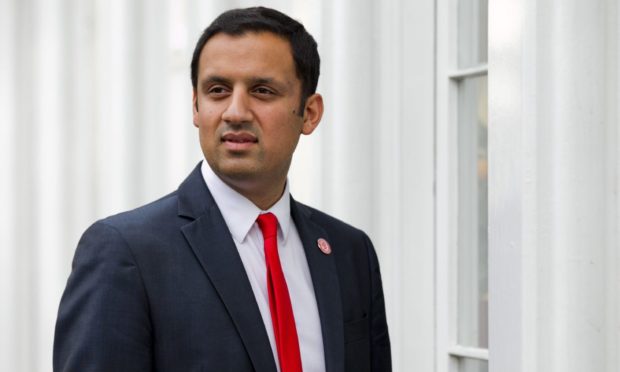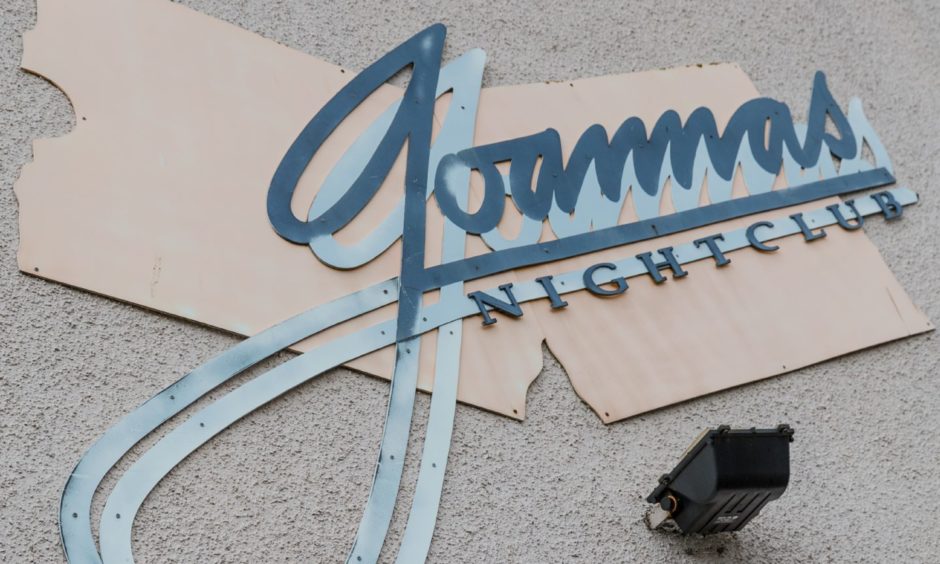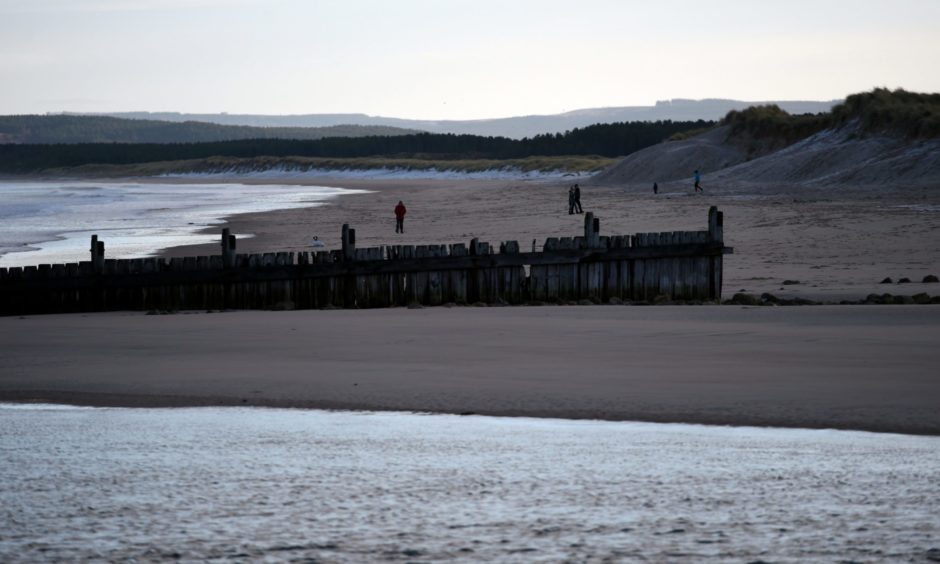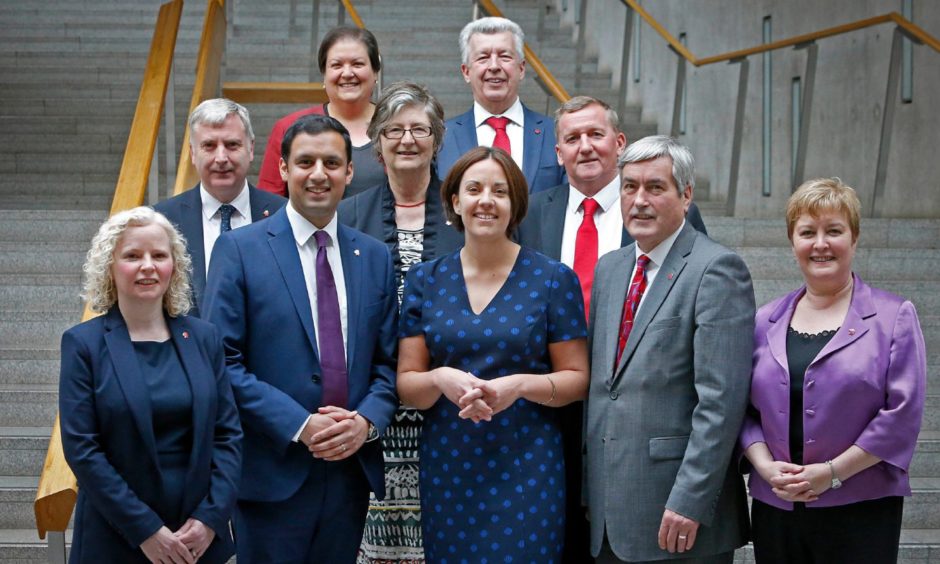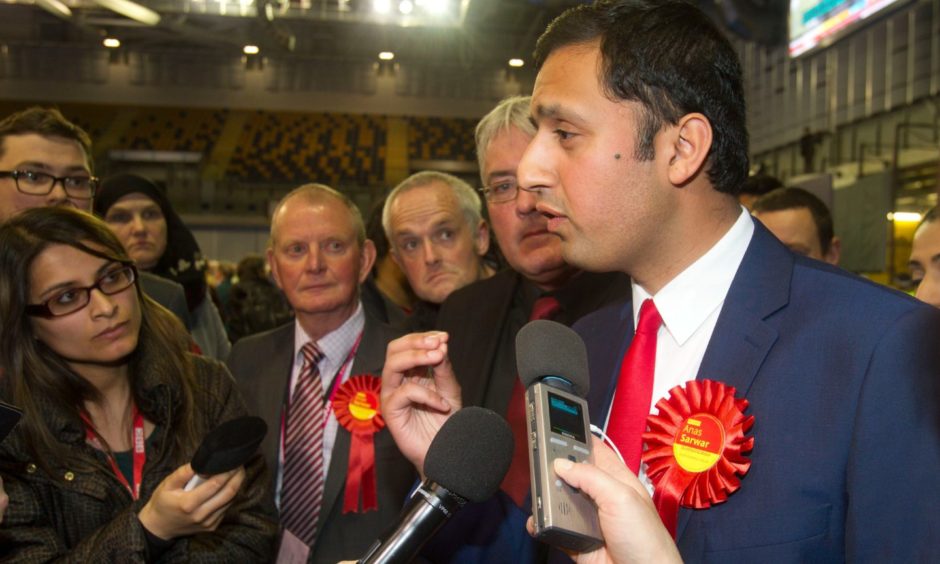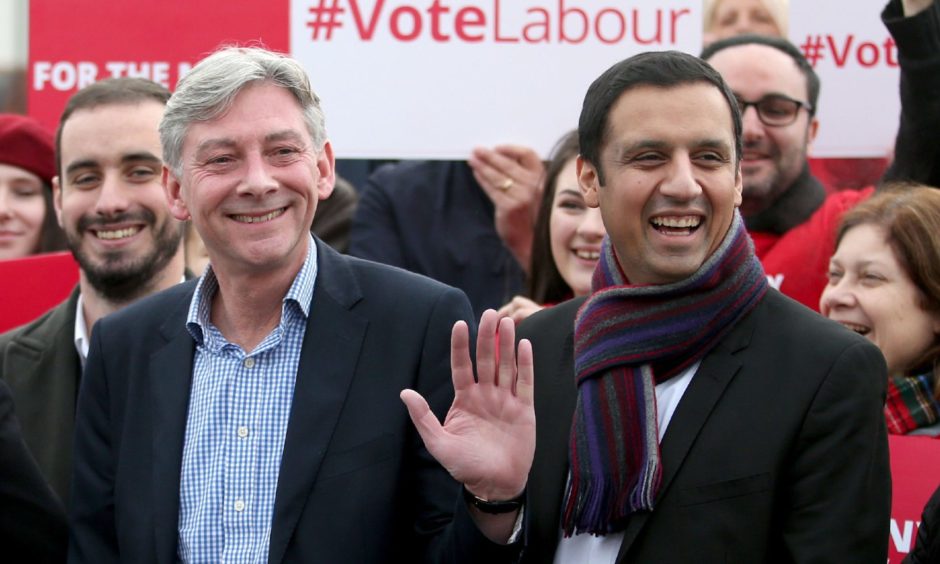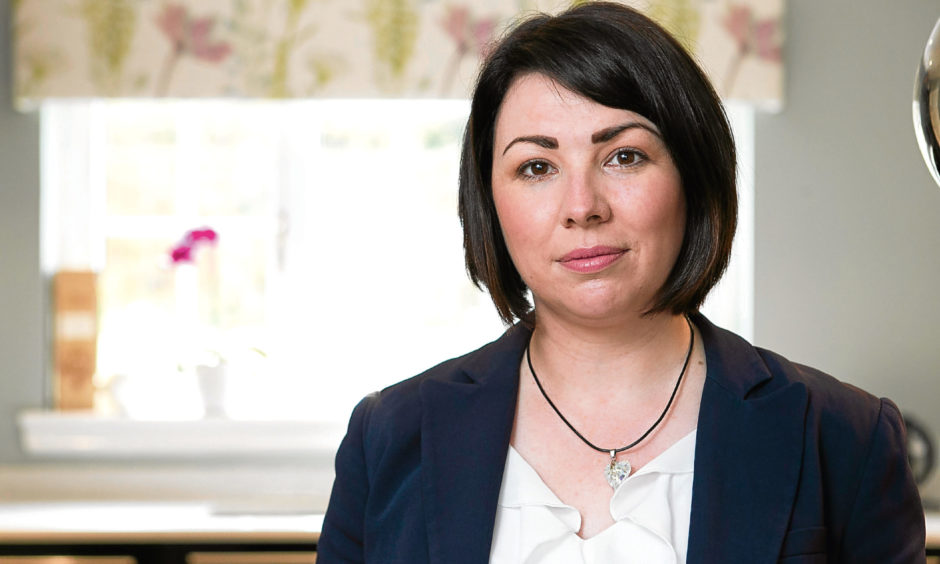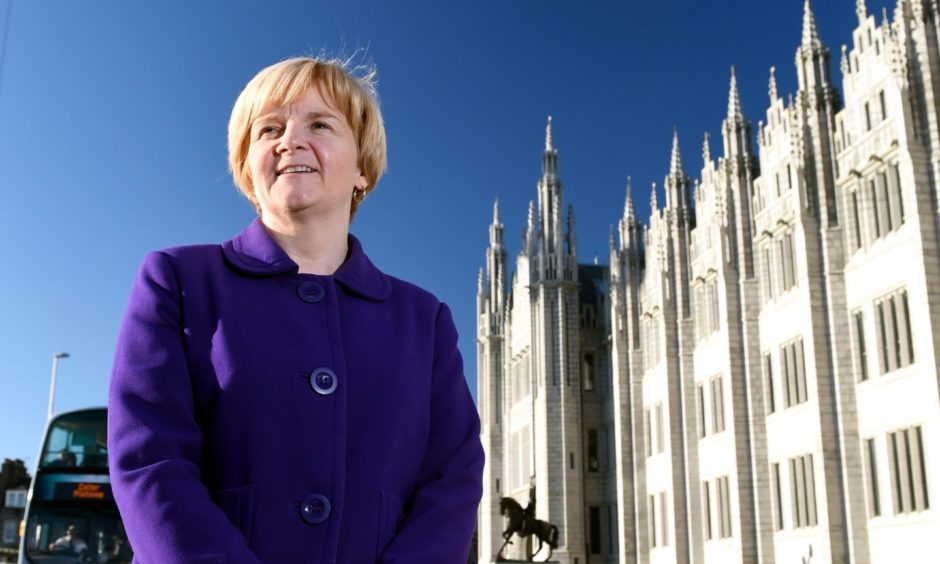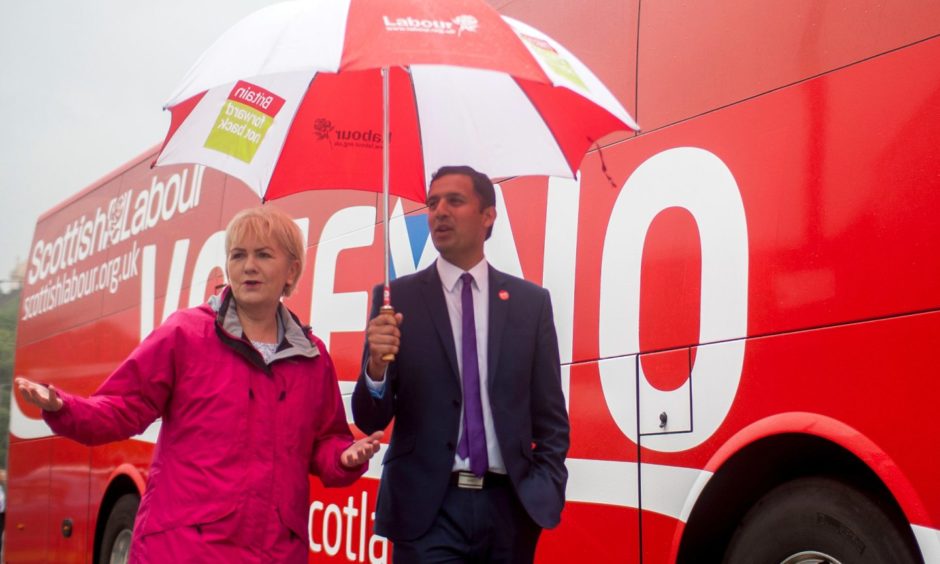Anas Sarwar has plenty to ponder as he attempts to plot a new path and purpose for the once-proud Scottish Labour Party, while juggling home-schooling with a leadership contest and his duties as an MSP.
But amid it all, the 37-year-old’s thoughts turn unexpectedly to Joanna’s nightclub in Elgin, as he allows himself a moment to reminisce about his memories of Moray.
“My uncle had a carry-out just opposite Joanna’s. I’m not sure if Joanna’s is still there? With the sticky floor?” he asked, during an interview with this newspaper.
“I remember one summer, the deal for me spending all my summer holidays in Lossiemouth and Elgin, and being allowed to stay with my uncles, was, in exchange for free digs for the six weeks, I had to work in the carry out five nights a week.
“So I remember working in the back of the carry-out, helping make the curries, fill the kebabs and cook the pizzas while people would come rolling out of Joanna’s into Natural Spice carry out in Elgin.”
In his younger years, however, it was the beach at Lossiemouth where Mr Sarwar spent most of his time during his summer and Easter holidays.
“Lossie beach. Going to get the ice cream and the bakery shop on the corner where I used to go to get my gingerbread man and my bread,” he said.
“Walking over that bridge, going over to Lossie beach, rolling down those dunes. Amazing.”
Lossiemouth in particular is a key part of my family’s story, but also my story.”
Mr Sarwar’s grandfather, Ghulam Mohammed, had settled in Lossiemouth after arriving in the UK in the 1940s, and his mother, Perveen Sarwar, lived there from the age of four until her mid-20s, attending the local schools.
“Lossiemouth in particular is a key part of my family’s story, but also my story,” said the Glasgow MSP, who regularly returns to visit his relatives and the graves of his grandparents.
Back in 2011, just one and a half years after succeeding his father, Mohammad Sarwar, as MP for Glasgow Central, he launched his campaign for the deputy leadership of Scottish Labour in Lossiemouth.
At that time, Mr Sarwar was a rising star who was widely tipped as a future leader of the party, and the politician who was best-placed to take the fight to the SNP after its landslide Holyrood election victory paved the way for an independence referendum.
Instead, a decade of decline followed for the party and the politician, with Mr Sarwar losing his Westminster seat in 2015 and, after becoming a regional Glasgow MSP in 2016, another defeat followed in the 2017 Scottish Labour leadership battle with Richard Leonard.
When asked about the pressure that came with that weight of expectation in the early days of his career, and whether it became a burden, Mr Sarwar said: “I think the honest answer to that is ‘yes’, and I’ll tell you what I mean by that.
“I’ve said a bit about how in the last few years I’ve kind of changed my thinking, and probably changed me as a human being and also as a politician.
“So the two biggest, I would say hardest, parts, and negative parts, of my political career, at least, were my two defeats but I honestly believe that the most I’ve learned are from those two defeats as well.
“And see the uplifting of pressure and the release you feel and the personal confidence that you get from not having the pressure of being stuck with the ‘hope’ title or the ‘ambition’, is liberating.
“And I’ve spent the last few years, therefore, much more self-confident about being myself, about talking about the issues that impact me and people like me, and listening and learning to communities, and trying to bring communities together.
“It genuinely has given me a different perspective on politics. It’s given me a different perspective on how we conduct our politics.
“And I think it has changed me as politician and changed me as a person.”
It is our best way of delivering justice and fairness and equality for all.”
His soul searching at times led Mr Sarwar, a married father-of-three who is a trained dentist, to consider whether his future lay away from politics.
“There were periods over the last few years where I’ve thought maybe my energy, maybe my time and my ambition to want to help others and change people’s lives, can be best served not in front-line politics,” he said.
“The most recent times of that was probably early last year, where I actively thought about whether I wanted to stay in politics.
“But in a strange kind of way, Covid, whilst of course being a heart-breaking experience, whilst of course being a really difficult experience, exponentially increasing the workload and the pressure, has made me relight that passion for politics – in a sense of, it is our best way of changing the world.
“It is our best way of delivering justice and fairness and equality for all.”
He added: “So, yeah, I’m still here, still going strong, but that’s not to say I see myself doing politics all my life.
“I will always spend my life in public service. I will always spend my life doing things I care about, and issues I care about.
“For now, I think that’s about trying to dedicate my adult life, or my best years ahead, to try to rebuild the Scottish Labour Party, and hopefully through that platform try to change the lives of people in Scotland.”
Scottish Labour’s decline has claimed many high-profile casualties over the years, including Mr Sarwar himself in 2015.
The latest became his former leadership rival, Mr Leonard, who resigned last week after failing to resuscitate Labour’s flatlining fortunes.
“The first reaction was obviously one of shock. It did feel like it came out of nowhere,” Mr Sarwar said.
“Of course there had been speculation. There had obviously been really high-profile calls on Richard’s leadership in the latter part of last year.”
He added: “My first reaction, after getting through the shock, was one of a bit of stress, because I knew that the calls would start to come, and the pressure would come from people wanting to urge me to stand.
“And what I said to people, and what I will repeat now, is: I didn’t have any kind of sharp ambition to want to stand this time, and I was only willing to stand if I genuinely believed there was a chance of us coming through the period of division that we’ve had, and to bring our party together and more importantly to bring our country together.”
Leadership contest
Mr Sarwar confirmed he would run again for the top job, setting up a contest with fellow MSP Monica Lennon, who is seen to be more on the left of the party.
One of the many criticisms of Mr Leonard’s leadership was his refusal to resolve the future of nine Aberdeen councillors, who were suspended in 2017 for forming a power-sharing coalition with the Conservatives.
Mr Sarwar was clear about the stance he would take on the issue.
“Of course, there are some legal specifics that need to be looked into, in terms of the process,” he said.
“But one thing I am absolutely clear on is that these are not nine ex-Labour colleagues, these are nine current Labour colleagues who are working day and night to deliver Labour values in administration for the people of Aberdeen, who have the great honour of being noted as the UK council of the year as well.
“They are Labour councillors, leading on the front, and I look forward to engaging with them even more closely, and to working with them in the years to come.”
While Labour’s coalition kept the SNP out of office at Aberdeen City Council, the party has not come anywhere near returning to power nationally over the last decade, in large part due to the rise in support for the SNP, and Scottish independence.
Mr Sarwar has insisted there should be no second independence referendum in the next Scottish Parliament, saying a “period of calm” was required after the pandemic.
He admitted, however, that Labour had failed to offer a compelling alternative vision of the future of late, although he hoped that would now change.
“We haven’t given people a credible alternative and I am not going to shy away from saying when the SNP get it wrong, and exposing their failures in government,” he said.
“But I think one of the lessons from recent history is that just exposing their failures isn’t enough.
“Unless we give the people of Scotland a credible alternative, people will still continue to vote for the SNP.
“And that credible alternative is not going to be a quick fix by having an answer on a constitutional question, it’s by showing them that we have fresh ideas, we have fresh talent, and we have a fresh vision for Scotland that represents the future of Scotland, and doesn’t live off the past.”
He added: “That’s going to take time. I’m not naïve enough to think that that’s going to happen overnight by just changing the leader, or indeed one election.
“That’s going to take time, but I’m willing to put in that time, to build that team, to build those ideas and to build that vision that can pull our country together again.”
‘I want the Labour Party to change’
To succeed in that task, Mr Sarwar believes Labour must become liberated from its past, in the way he says he has been.
“The idea that people in their 30s can’t change. The idea that people in their 30s can’t get a second chance, or that people in their 30s are written off, or aren’t still learning and growing… it sends a very bad message to the rest of Scotland as well,” he said.
“I think I have learned. I have changed. And I want the Labour Party to learn and I want the Labour Party to change.”
